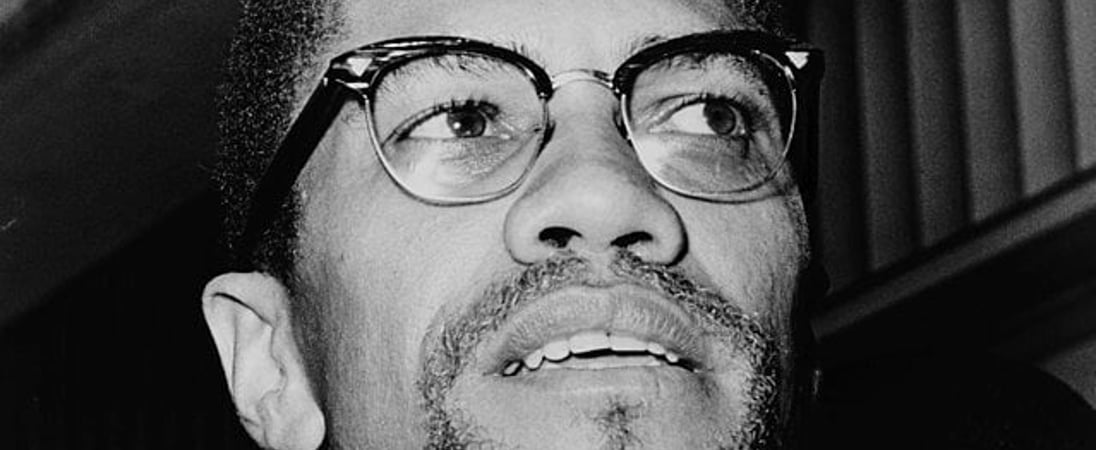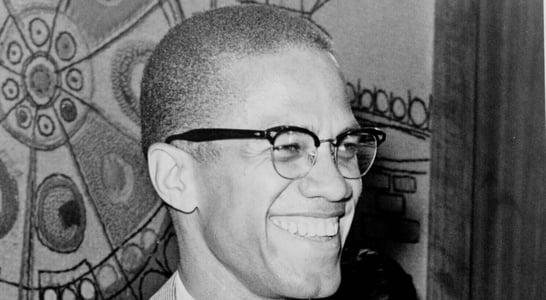
Malcolm X's birthday
Malcolm X, born May 19, 1925, was a significant figure in American history. He became a powerful voice for African Americans, advocating for their rights and challenging racial inequality.
His journey included a transformation from a life of crime to becoming a leader who inspired many. Malcolm X’s story is marked by his bold stance against injustice and his evolution in thought and activism until his assassination in 1965.
Malcolm X’s Early Years
Malcolm X’s childhood was tough and full of challenges. Born Malcolm Little in Omaha, Nebraska, he faced racial prejudice from a young age.
His family moved several times to escape threats from white supremacists. Tragically, when Malcolm was just six years old, his father died under mysterious circumstances believed to be linked to racial violence.
Growing up, Malcolm showed a keen mind and was a standout student. However, his educational journey was cut short.
After a teacher discouraged his ambition to become a lawyer, saying it was “no realistic goal for a nigger,” Malcolm lost interest in school. He left formal education after the eighth grade, a decision that led him down a difficult path.
Moving to Boston and later New York, Malcolm’s early life was marked by various struggles. He faced the harsh realities of life in big cities, eventually getting involved in criminal activities.
Though troubled, this period of his life shaped the man he would become, setting the stage for his later transformation and impact.
Triumphs and Legacy of Malcolm X
Malcolm X’s journey to success began with a dramatic shift in his life. While in prison, he turned to education, spending hours reading and broadening his understanding of the world. He also joined the Nation of Islam, which played a crucial role in shaping his beliefs and activism.
After his release in 1952, Malcolm X became a prominent figure in the Nation of Islam. His powerful speeches and charismatic leadership drew large crowds.
He spoke passionately about Black empowerment, racial pride, and self-reliance. His influence grew rapidly, making him a national figure in the civil rights movement.
In 1964, Malcolm X’s journey took another turn. He left the Nation of Islam and embraced Sunni Islam. This change shifted his views, promoting a more inclusive approach to fighting racial injustice.
He traveled across Africa and the Middle East, gaining international recognition and support for his cause.
Despite facing constant threats, Malcolm X continued to speak out boldly against racism and inequality. His autobiography, co-written with Alex Haley, remains crucial in understanding the Black experience in America.
Malcolm X’s life, cut short by assassination in 1965, left a lasting impact. He inspired countless individuals to challenge injustice and fight for their rights, marking him as one of the most influential figures of the 20th century.
Interesting Facts About Malcolm X
Name Evolution: Malcolm Little changed his surname to ‘X’ as a symbol of rejecting his ‘slave‘ name and in place of his lost African tribal name.
Avid Reader: In prison, Malcolm X read voraciously, sometimes up to 15 hours a day.
Language Skills: During his imprisonment, he taught himself to speak and read French, which later helped him during his travels in Africa.
FBI Surveillance: The Federal Bureau of Investigation (FBI) closely monitored Malcolm X due to his growing influence, starting in the late 1950s.
Human Rights Activism: Towards the end of his life, Malcolm X began to focus more on human rights rather than solely on civil rights, broadening the scope of his activism.
Influential Speeches: His speech “The Ballot or the Bullet” is considered one of the greatest speeches in American history.
Also on this date...
National Devil’s Food Cake Day
Indulge in the devilishly delicious experience of a rich, chocolaty Devil's Food Cake. With its velvety texture and heavenly aroma, one bite will send you straight to dessert heaven!
World Baking Day
Cookies, brownies, pies, bread…try out some new recipes, or revisit your old favorites to have a little fun in the kitchen and end up with tasty treats.




